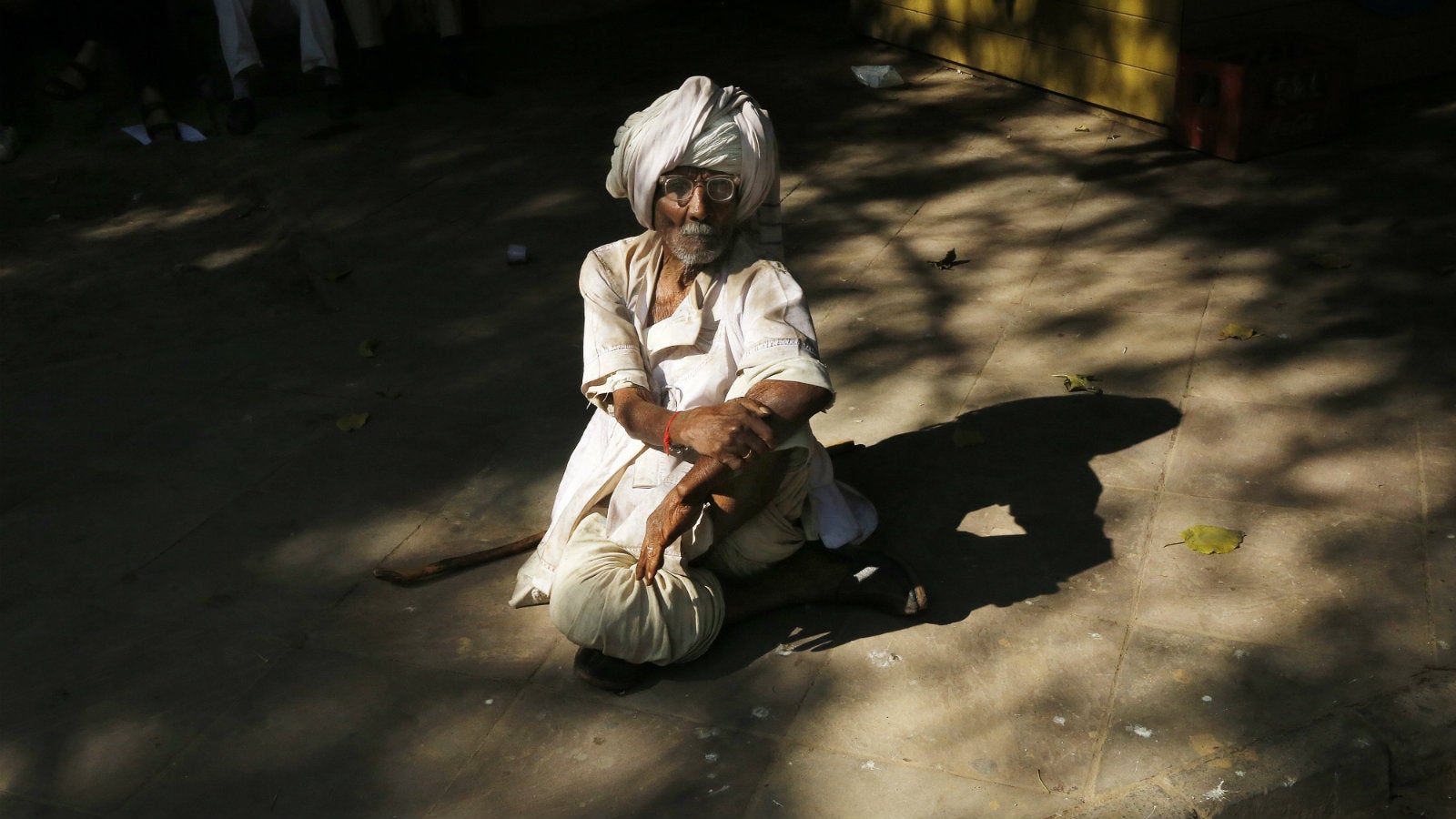Living longer but with no income, Indians have the worst retired lives
Old age in India can be rather tough.


Old age in India can be rather tough.
Asia’s third-largest economy has ranked last in a global retirement index released by French asset management company Natixis Global. The ranking includes 43 countries and is based on factors like material means to live comfortably, access to financial services, access to health services, and a clean environment.
Switzerland, Norway, and Iceland topped the ranking, while the US ranked 14th.
India ranked last in terms of healthcare and quality of life, second to last in terms of finances in retirement, and third to last in the material well-being index, which is calculated on the basis of per capita income, unemployment, and income equality.
“Once touted as the next global economic powers, the BRIC countries (Brazil, Russia, India, and China) continue to demand particular attention when discussing retiree welfare in a global context. While the four countries show great promise in
Last year, India had ranked 88 out of 150 countries included in the annual study. It was still the worst performing country that year among the BRIC nations. India’s 2016 overall ranking is affected by the fact that this year’s list is mainly composed of developed countries.For this year’s survey, Natixis Global included only the International Monetary Fund’s 34 advanced economies, five OECD nations, and the four BRIC countries.
Rising old population
Among the BRIC countries, India has the lowest percentage of its population aged 65 years and above. However, the country’s share of old people has been on the rise, which makes it essential for the country to focus on improving facilities for retired people.
Health
All BRIC countries scored low in terms of the quality of their healthcare systems, but India was at the bottom of the list.
“India has the lowest ranks for health expenditure per capita, non-insured health expenditure and life expectancy out of all countries measured in this year’s ranking,” the report said. ”While people in urban areas have greater access to adequate healthcare services, India’s massive rural population is still denied basic healthcare.”